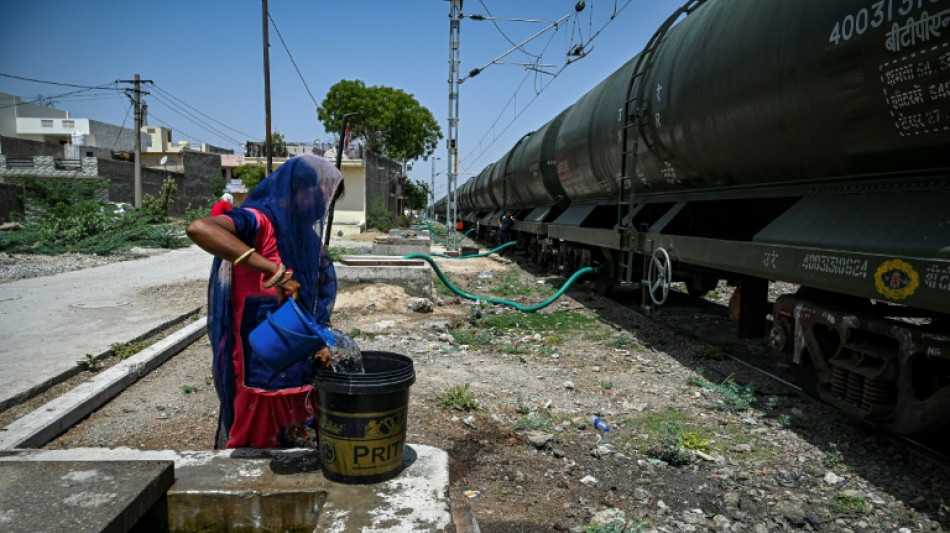
-
 Trump tells Iranians to 'keep protesting', says 'help on its way'
Trump tells Iranians to 'keep protesting', says 'help on its way'
-
Italian Olympians 'insulted' by torch relay snub

-
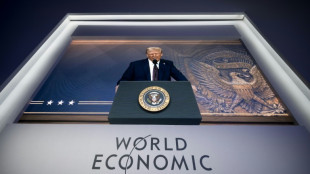 Davos braces for Trump's 'America First' onslaught
Davos braces for Trump's 'America First' onslaught
-
How AI 'deepfakes' became Elon Musk's latest scandal

-
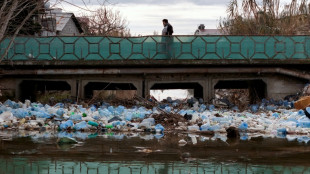 Albania's waste-choked rivers worsen deadly floods
Albania's waste-choked rivers worsen deadly floods
-
Cancelo rejoins Barca on loan from Al-Hilal

-
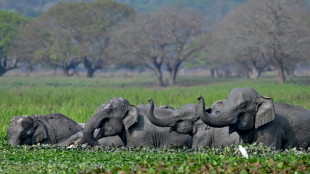 India hunts rampaging elephant that killed 20 people
India hunts rampaging elephant that killed 20 people
-
Nuuk, Copenhagen mull Greenland independence in Trump's shadow
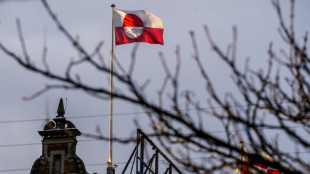
-
 WHO says sugary drinks, alcohol getting cheaper, should be taxed more
WHO says sugary drinks, alcohol getting cheaper, should be taxed more
-
Arteta urges Arsenal to learn from League Cup pain ahead of Chelsea semi

-
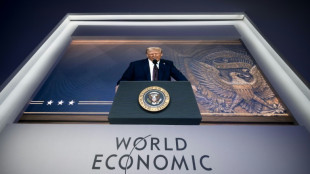 Davos elite, devotees of multilateralism, brace for Trump
Davos elite, devotees of multilateralism, brace for Trump
-
Spanish star Julio Iglesias accused of sexual assault by two ex-employees
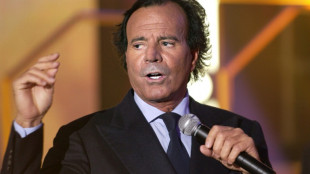
-
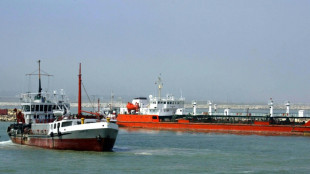 Trump's Iran tariff threat pushes oil price higher
Trump's Iran tariff threat pushes oil price higher
-
US consumer inflation holds steady as affordability worries linger
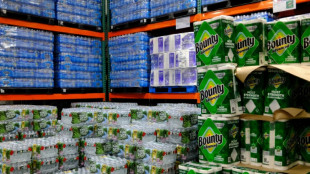
-
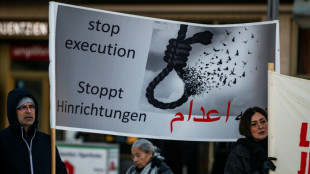 Iran to press capital crime charges for 'rioters': prosecutors
Iran to press capital crime charges for 'rioters': prosecutors
-
Denmark, Greenland set for high-stake talks at White House
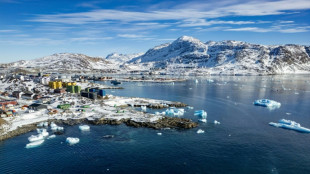
-
 Iranian goes on trial in France ahead of possible prisoner swap
Iranian goes on trial in France ahead of possible prisoner swap
-
Cold winter and AI boom pushed US emissions increase in 2025
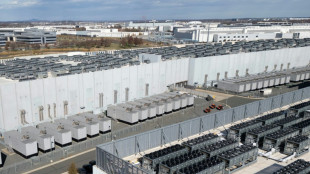
-
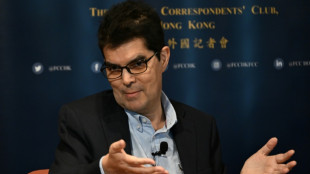 Hong Kong activist investor David Webb dies at 60
Hong Kong activist investor David Webb dies at 60
-
Try to be Mourinho and I'll fail: new Real Madrid coach Arbeloa
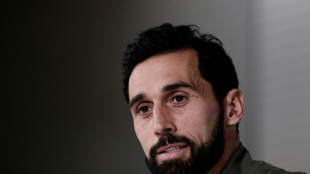
-
 Vingegaard targets Giro d'Italia and Tour de France double
Vingegaard targets Giro d'Italia and Tour de France double
-
South Korean prosecutors demand death penalty for ex-leader Yoon
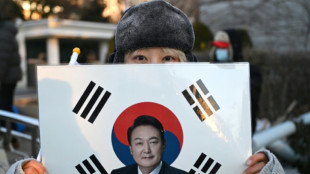
-
 Iwobi hails Nigerian 'unity' with Super Eagles set for Morocco AFCON semi
Iwobi hails Nigerian 'unity' with Super Eagles set for Morocco AFCON semi
-
Le Pen appeal trial opens with French presidential bid at stake
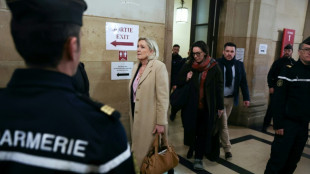
-
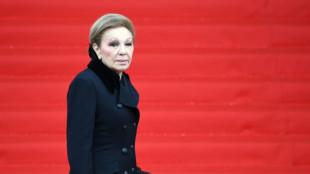 Iran ex-empress urges security forces to join protesters
Iran ex-empress urges security forces to join protesters
-
Sudan 'lost all sources of revenue' in the war: finance minister to AFP
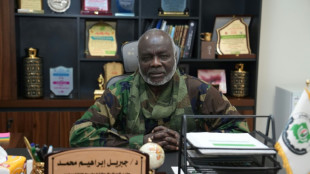
-
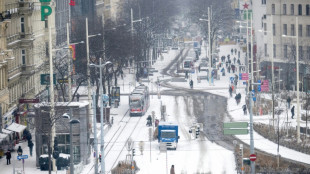 Freezing rain hampers transport in Central Europe
Freezing rain hampers transport in Central Europe
-
Nuuk, Copenhagen cautiously mull Greenland independence
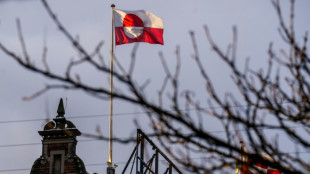
-
 'Proving the boys wrong': Teenage racers picked for elite driver programme
'Proving the boys wrong': Teenage racers picked for elite driver programme
-
Mbappe absent from training as Arbeloa takes charge at Real Madrid

-
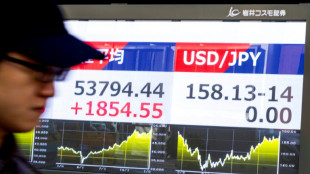 Iran worries push up oil price as world stocks diverge
Iran worries push up oil price as world stocks diverge
-
Volvo Cars pauses battery factory after fruitless partner search
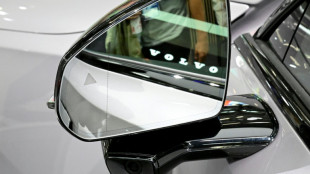
-
 Social media harms teens, watchdog warns, as France weighs ban
Social media harms teens, watchdog warns, as France weighs ban
-
Central bank chiefs voice 'full solidarity' with US Fed, Powell
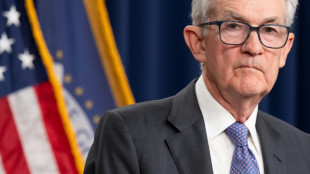
-
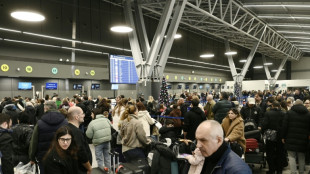 Greece airspace shutdown exposes badly outdated systems
Greece airspace shutdown exposes badly outdated systems
-
France climate goals off track as emissions cuts slow again
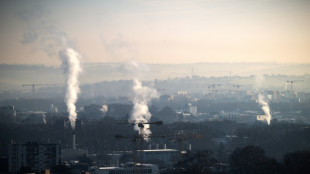
-
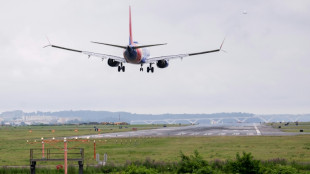 Boeing sells 50 737 MAX jets to leasing group ACG
Boeing sells 50 737 MAX jets to leasing group ACG
-
Freezing rain paralyses transport in Central Europe
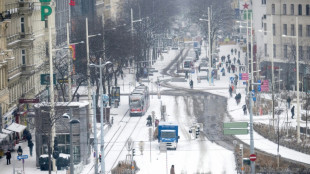
-
 Man Utd reach deal to appoint Carrick as interim boss: reports
Man Utd reach deal to appoint Carrick as interim boss: reports
-
Trump hits Iran trade partners with tariffs as protest toll soars

-
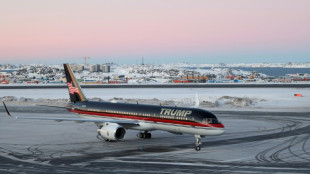 Is China a threat to Greenland as Trump argues?
Is China a threat to Greenland as Trump argues?
-
Takaichi says urged S. Korea's Lee to help 'ensure regional stability'
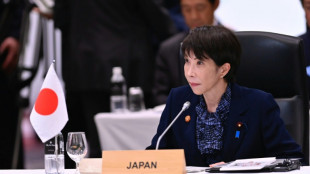
-
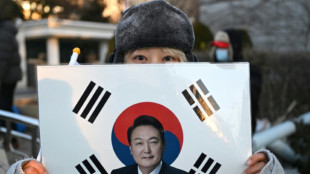 South Korean prosecutors set to demand heavy sentence for Yoon
South Korean prosecutors set to demand heavy sentence for Yoon
-
Honduras electoral authorities reject vote recount
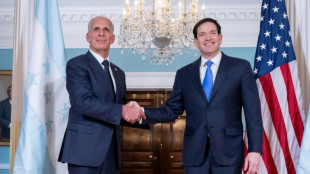
-
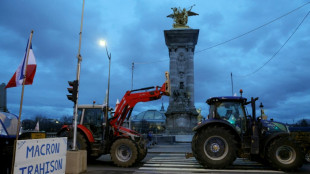 Tractors in Paris to protest EU's trade deal with S. America
Tractors in Paris to protest EU's trade deal with S. America
-
Asian markets rise, Iran worries push up oil
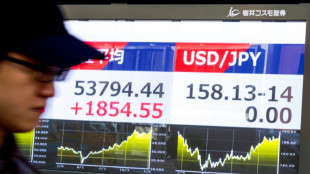
-
 Williams loses golden oldie clash in final Australian Open warm-up
Williams loses golden oldie clash in final Australian Open warm-up
-
Kyrgios stands by decision to skip Australian Open singles

-
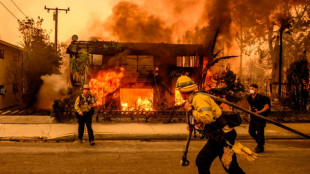 Disaster losses drop in 2025, picture still 'alarming': Munich Re
Disaster losses drop in 2025, picture still 'alarming': Munich Re
-
Williams, 45, loses in first round of final Australian Open warm-up

| SCS | 0.12% | 16.14 | $ | |
| CMSC | -0.21% | 23.26 | $ | |
| BCC | -0.21% | 82.79 | $ | |
| RIO | 1.07% | 83.775 | $ | |
| NGG | -2.7% | 77.66 | $ | |
| GSK | -0.9% | 49.94 | $ | |
| RBGPF | 1.13% | 82.5 | $ | |
| CMSD | -0.44% | 23.761 | $ | |
| BCE | -0.32% | 23.765 | $ | |
| JRI | -0.15% | 13.79 | $ | |
| RYCEF | -0.06% | 17.28 | $ | |
| VOD | -2.61% | 13.205 | $ | |
| BP | 1.95% | 35.095 | $ | |
| AZN | 0.39% | 94 | $ | |
| BTI | 1.51% | 56.535 | $ | |
| RELX | -1.6% | 42.095 | $ |

Most countries 'woefully unprepared' for changing climate: analysis
Major economies such as India, Brazil and Russia face "cascading" crises driven by climate change such as food insecurity, energy shortages and civil unrest, an industry analysis warned Thursday.
While developing nations of Africa and Southeast Asia are predicted to be worst hit by higher temperatures, extreme weather and sea-level rise, some middle-income nations lack the infrastructure and legislative freedom to keep pace with the changing climate.
And, as Europe counts the cost of another record-shattering heatwave, the analysis showed how even nations with typically few climate-linked crises will need to adapt as global temperatures rise.
The analysis looked at countries' performances across 32 structural issues -- including weather-related events, political stability, economic power, resource security, poverty and human rights -- to assess each nations' capacity to manage crises.
It then divided countries into three categories: insulated, precarious and vulnerable.
Unsurprisingly, most wealthy nations performed well and were found to be the most insulated against climate shocks thanks to a combination of good governance, purchasing power and robust infrastructure.
Developing nations were mainly deemed to be in the vulnerable category for lacking these safeguards. Several middle-income countries, however, including India, Indonesia and South Africa also fell into this grouping.
- Risks will spill over -
"The low levels of investment in looking at the secondary risks show that most countries are almost entirely unprepared to deal with the wider political, economic and developmental impacts of a warming planet," said the analysis.
Will Nichols, head of climate and resilience at consultancy firm Verisk Maplecroft that conducted the assessment, said the major surprise was in the middle -- or the "precarious" category -- which contained powerhouses such as Brazil, Mexico, Russia and Saudi Arabia.
"Brazil is teetering on the edge," Nichols told AFP.
"A slight change could see it drop into that bottom group and we are certainly seeing the erosion of environmental and social protections under (President Jair) Bolsonaro.
"In Russia, Arctic infrastructure is going to be undermined by warming and you could see a leader like (President Vladimir) Putin point the finger at other groups and seek to expand its territory," Nichols said.
Although a G20 economy, Mexico landed in the precarious category largely due to its proximity to Central and South American nations such as Venezuela facing extreme climate-linked disruption, particularly in the form of mass migration.
"These risks aren't contained by political boundaries, they will spill over," said Nichols.
"Even if you have your house in order, if your neighbour is a basket case that can seriously undermine your ability to protect yourself."
- 'Don't have resilience' -
Under the UN-led climate action plan, rich nations promised in 2009 to provide $100 billion annually to at-risk countries by 2020 but have so far failed to even approach that level of funding.
Nichols said the analysis showed the need for developed countries to help nations that cannot help themselves.
"We've seen relatively small amounts of people arriving in Europe and the US due to climate impacts causing major issues," he said.
"There's an argument that we as insulated nations have a responsibility to help vulnerable nations to protect themselves, which in turn helps protect us."
Nichols said this week's deadly heatwave in Europe was proof that even rich countries needed to factor climate change into future business and governance decisions.
"The scale of the climate threat isn't diminishing -- it is obviously going to have a huge impact," he said.
"But countries in Sub-Saharan Africa, Southeast Asia and South America don't have the resilience to manage both the physical climate threat and the knock-on effects of political and supply chain instability."
H.Darwish--SF-PST



